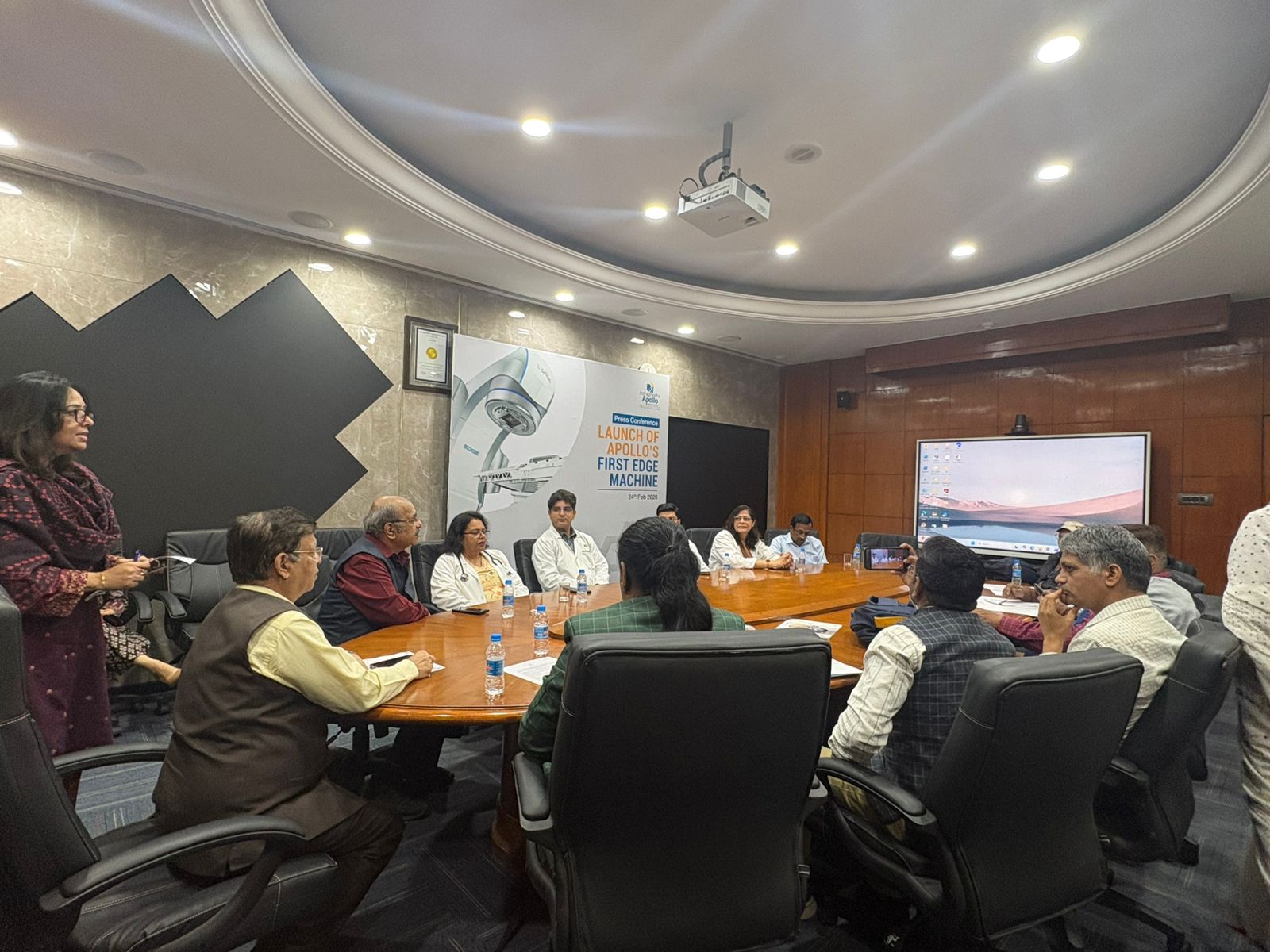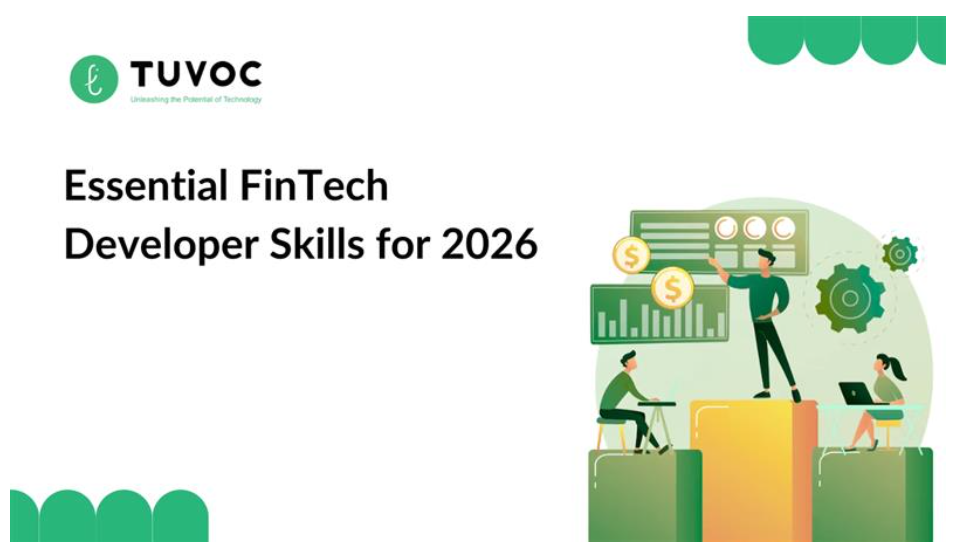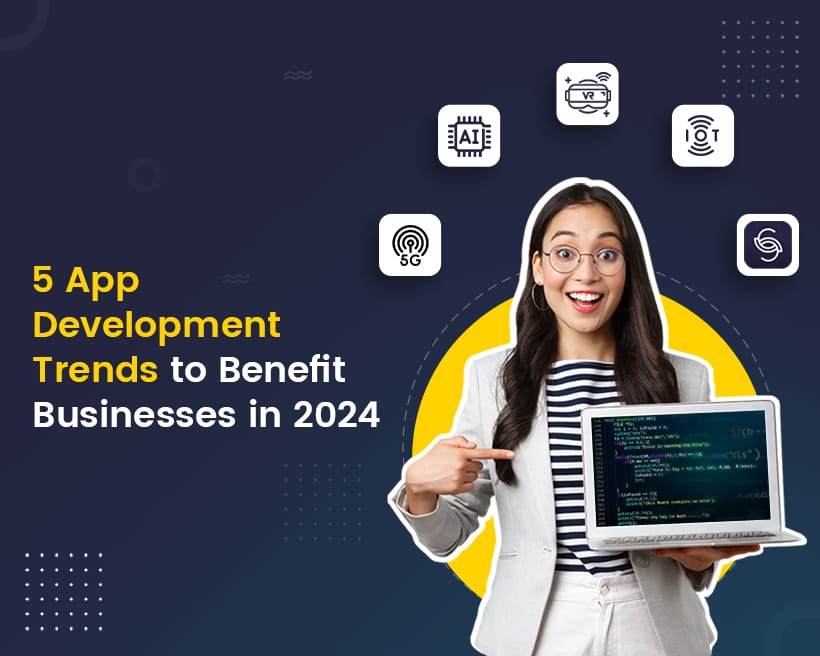Applications are fundamental tools for shaping business strategies in this era of digitization. Statista says users downloaded 27 billion apps on Google Play and 8.1 billion on the Apple App Store in 2023’s first quarter. The numbers will increase in 2024, offering businesses greater opportunities for customer engagement and revenue growth. However, to turn customers in your favor, you must provide them with personalized and trending user experiences. That’s possible if you keep these five key app development trends in mind while developing a mobile application for your business.
Table of Contents
5G Technology
5G will revolutionize the mobile app development industry with minimal latency and incredible transmission speeds of up to 1GB/second. According to Ericsson Mobility Report, 5G will make a fundamental shift in the mobile connectivity landscape, which will hit 1.5 billion subscribers by the end of 2024.
Let’s explore what opportunities 5G, as a popular app development trend, will offer businesses across various industries:
- Better cloud compatibility: 5G offers high transmission rates that easily and quickly transfer data to cloud networks. Hence, users can rely less on device hardware for data access and storage for efficient business operations.
- Enhanced user experience (UX): 5G supports innovative app features and efficiently handles immersive and responsive user experiences in mobile apps.
- Increased GPS capabilities: 5G promotes accurate location tracking and enhanced GPS performance. Hence, developers can leverage this advanced technology to develop smart applications like can booking, food and grocery delivery, local business finder applications, and more.
- Improved video streaming: 5G significantly improves video streaming, a significant part of mobile apps. It provides greater efficiency and reliable connections to load higher-quality video streaming and instantaneous playback with less buffering. This results in greater user engagement.
- Supporting data-heavy applications: 5G also ensures smooth data interoperability and processing of large data volumes without lagging. Therefore, it increases the scalability and performance of data-heavy applications and optimizes business operations.
AI-backed User Experience
Artificial Intelligence (AI) has been continuously shaping the mobile app development industry. In 2024, it is going to put a special focus on user experience, enhancing and positively impacting it in the following areas:
- Improved data analysis and processing: AI analyzes bulk data and delivers important insights. For example, Strava, a fitness app, analyzes user data to create personalized exercise insights and suggestions. It also analyzes user data and preferences to offer personalized recommendations to improve user experience. Spotify and similar music streaming apps use AI to develop customized playlists that match users’ preferences. Furthermore, these insights can also pinpoint gaps that can be used to improve user experience.
- Task automation: AI automates intelligent tasks like understanding and responding to user commands. This improves the intuitiveness and usability of applications. For example, Siri and Google Assistant use machine learning and natural language processing to analyze, process, and respond to users’ queries for instant assistance and seamless interaction, resulting in enhanced user experience. Furthermore, integrating this new technology into your mobile application can automate problem-solving using logical reasoning capabilities. For example, Uber uses AI for traffic information analysis to optimize routes for its network of vehicles. This results in efficient services.
Augmented Reality and Virtual Reality (AR and VR)
Augmented Reality (AR) and Virtual Reality (VR) deliver blended digital elements with the real world to create immersive environments and unique experiences. Integrating these technologies into mobile applications transforms how businesses interact with users.
The following benefits highlight the impact of these technologies in mobile app development:
- Data visualization and analytics: AR and VR can visualize complex datasets into three-dimensional spaces for easy analysis and understanding. For example, banking apps can use AR and VR to graphically represent expenditures, investments, and other transactions for better understanding.
- Enhanced decision-making: AR and VR can offer users immersive product demos and virtual spaces like real-estate properties and retail showrooms. Users can get a better idea of the products by trying them out virtually. Furthermore, users can immerse in virtual spaces, minutely exploring every nook and corner. Therefore, users can have a detailed and realistic overview of the products and spaces before purchasing them. These act as innovative marketing strategies and result in informed decision-making.
- Learning, skill development, and training: AR and VR help create interactive and immersive learning and training experiences. In the educational sector, students can explore historical sites, understand complex concepts via 3D visualization, and more for dynamic learning experiences. Furthermore, these technologies provide realistic simulations where employees can practice and sharpen their skills in a controlled, safe environment. AR and VR can be used in healthcare for patient education, surgical training, and therapeutic settings. All of these results in efficient training and reduced training costs.
- Remote collaboration: AR and VR can create virtual conference rooms and workspaces where developers can communicate and work together efficiently. Furthermore, developers can represent 3D models of complex concepts for better understanding. All these lead to efficient remote collaboration, teamwork, and productivity.
- Visualized product development: AR and VR technologies provide a virtual environment to developers for creating and testing prototypes. This virtual environment reduces physical prototyping costs and time for innovative product designs and faster product development cycles.
Internet of Things (IoT)
IoT is a crucial trend that you must consider for your mobile app development project. Some of the opportunities that IoT as an app development trend provides to businesses include:
- Customer behavior analysis and improved user experience: IoT can collect data from multiple devices and gadgets connected to your website, social media pages, and others. These insights can predict the behavior and preferences of your customers based on which you can base your marketing strategies. Furthermore, these insights can tailor content, products, and services that match your customers’ expectations and deliver better experiences.
- Greater security: Since IoT devices handle sensitive customer and location data, they follow strict encryption policies and protocols to safeguard them. Furthermore, they store data in secure cloud servers to prevent unauthorized access and other cybersecurity threats.
- Location independence: IoT sensors work remotely. For example, CCTV cameras can send real-time feeds and data to your mobile device. Furthermore, you can track your premises remotely using the same mobile app. This real-time, remote monitoring facility enhances workplace safety.
- Valuable insights: IoT automates different operations in different industries. For example, IoT can help monitor environmental conditions in the agriculture industry, equipment and units in the manufacturing industry, vehicles and fleets in the transportation industry, inventory and shelves in the retail sector, patients in the healthcare industry, and more. Then, IoT analyzes these real-time data to deliver helpful insights that can help in business decisions.
Super Apps
Super apps have become a popular app development trend in 2024 due to their ability to provide a broader range of services in a single platform. Super apps are one-stop solutions for multiple users’ needs, from booking services and messaging to shopping and payments. Some highly popular super apps include Alipay, Paytm, and WeChat. Furthermore, super apps provide the following benefits to businesses:
- Increased revenue sources: Super apps offer an integrated eCommerce platform, enabling the selling of products and services right from the app. Furthermore, it also provides in-app advertising. This engages users and even triggers them to make further conversions.
- Strong brand positioning: Providing a range of products and services in one app likely increases user convenience and experience. Hence, your brand stands out as a convenient platform to engage compared to other businesses.
- Wider audience reach: Different users with diverse requirements can use a super app to address their needs. Users will find a range of services on your app compared to niche-specific apps. Henceforth, super apps can help you to cater to a wider audience.
Conclusion
2024 will witness several transformative trends, changing how users interact with mobile applications. Driven by a blend of technological innovation and shifting user preferences, mobile applications will integrate more advanced technologies to revolutionize the digital landscape. Stay tuned with us to remain updated with the latest software development trends.












